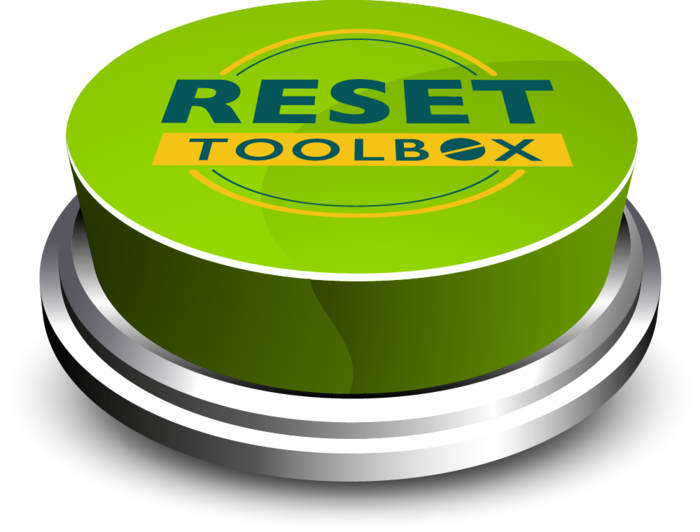As we continue to feel the effects of coping with a global pandemic, one of the many focuses of parents and professionals who work with children has been ensuring we’re doing our part to build and nurture resilient kids.
Here at Western Youth Services, we’re deeply committed to providing our community with the mental health resources they need, and buffering the effects of trauma experienced by children. In addition to abuse and neglect, things like social isolation, food and/or housing insecurity, and institutional racism can be considered contributing factors to adverse childhood experiences (ACEs) and related life events that create a toxic stress response often associated with trauma.
Early intervention is the key to mitigating the potential negative, long-term consequences of ACEs. For those working to nurture resilient kids and teens, having the right resources to provide strong support is essential.
It was with that in mind that the RESET Toolbox was born. It’s a collection of no-cost trainings designed to build resilient kids who are emotionally equipped to succeed.
Let’s take a closer look at how the RESET toolbox can help.
Self Regulation: What it is and Why it Matters
One of the most critical things we can do to build resilient kids is teach them how to correctly identify the emotions they feel, and how to self regulate. This isn’t something children just know — they need to be actively taught these skills, and see adults leading by example.
Self regulation is our ability to manage both our emotions and behavior in a way that’s proportionate to the demands of a given situation. From being able to effectively calm ourselves when we get upset, to adjusting our attitude when expectations change, to having the ability to handle frustration without blowing up, self regulation helps us find the middle ground between overreacting as well as underreacting.
In younger children, it’s often easy to identify when they’re having trouble expressing or regulating their emotions. They may cry, scream or have a tantrum, because they lack the language to tell you what they are feeling. However, as children mature, emotions become more complex and nuanced, but they still don’t necessarily have the right words or an understanding of why they’re reacting the way they are. Their brains are still developing, and while that’s a factor in their ability to self regulate, they can still be taught the skills they need to improve their self regulation as they grow.
The inability to self regulate is something that can have consequences, some of them potentially very impactful. It can affect their self control and self esteem in the long run, create problems dealing with authority figures like teachers, make it challenging to foster and maintain relationships, and more. That’s why addressing this in childhood, when possible, can help create the best possible outcomes.
Effective self regulation in children can look like:
- Thinking before they act.
- Showing patience.
- Cooperating with others.
- Meeting expectations, even when they don’t feel like it.
- Adapting to environmental changes.
Pressing the RESET Button
While there are countless methods we can employ to self regulate, one approach we encourage is that before someone takes action, they can use the following tool:

- Pause – Learn to pause instead of immediately reacting from a place of anger or frustration; take a few deep breaths.
- Think – Take a moment to think about how to respond to the situation. Perhaps put your feet in the other person’s shoes and imagine how you might feel if you were them. How can you respond from a place of compassion?
- Reset – Visualize a RESET button just like this one and gently press it as you take that moment to gather your thoughts. Being mindful in this process and making a habit of this new way of communicating will help you to build resilience and move from reacting to compassionately responding.
We share several ways to press the RESET button in Ready Set Resilience, a series of brief videos we created for the RESET Toolbox.
Dr. Nadine Burke Harris, California’s Surgeon General, shares how mindfulness meditation can reduce stress responses and decrease cortisol levels, and that cumulative doses of healing interactions can also contribute to more positive outcomes. Dr. Burke Harris has also spoken out about ACEs and the impact that strong educators and mindfulness practices can make when trying to build resilient kids.
The Developmental Assets Framework is also an excellent resource that maps out 40 positive supports and strengths that children and youth need to be successful. These assets are focused on a mix of external — family, school, community — as well as internal — values, social-emotional strengths and commitments.
Leveraging the RESET Toolbox
For those looking for resources to build resilient kids, the RESET Toolbox offers a library of self-paced trainings on the topics of mental health, mindfulness and coping skills.
Let’s look at some of the resources included in the RESET Toolbox.
Healthy Coping Skills for Stress & Anxiety
This presentation is geared towards parents, caregivers and adults who work with children in order to help them identify and cope with stress and anxiety both for themselves and the youth they serve. In this training you learn about stress, anxiety, healthy coping skills and how to implement them.
Emotion Regulation and Mindfulness
Geared toward anyone who helps to raise and train children, this training is focused on building resilient kids. It teaches them how to be aware of their own changing emotions and how to have the self-regulation skills to be able to effectively communicate their needs while getting their needs met. This training covers the benefits of mindfulness, how mindfulness operates in childrens’ lives, and how you can model mindfulness and help the children in your life practice it.
Ready Set Resilience
This is a series of brief video lessons on mindfulness geared for middle-school aged students. These lessons focus on the importance of human connection, the power of kindness, finding joy, mindfulness, why movement matters and more.
In addition to these trainings, Western Youth Services also partnered with several organizations to create the RESET Toolbox. These partners offer numerous trainings and programs to help adults build the skills and network they need to support the resilient kids in their world.
The RESET Toolbox was funded by the Orange County Health Care Agency (OCHCA), Behavioral Health Services, Coronavirus Aid, Relief, and Economic Security (CARES) Act and we’re thankful that we’re able to provide this no-cost resource to all residents of Orange County, California.
The Ongoing Effort of Building Resilient Kids
Nurturing resilient kids isn’t something that happens overnight. Learning the skills to self regulate is an ongoing process, and requires strong support and guidance from the adults in a child’s life. Whether you’re a parent, a teacher or any other professional that works with children, you can play a positive role — you do need the right resources to get started on the right track.
Want to learn more about the RESET Toolbox?
Visit the RESET website to find out how you can register for WYS and partner trainings and get access to all the resources you need.

Lorry Leigh Belhumeur, Ph.D.
Chief Executive Officer
Western Youth Services

